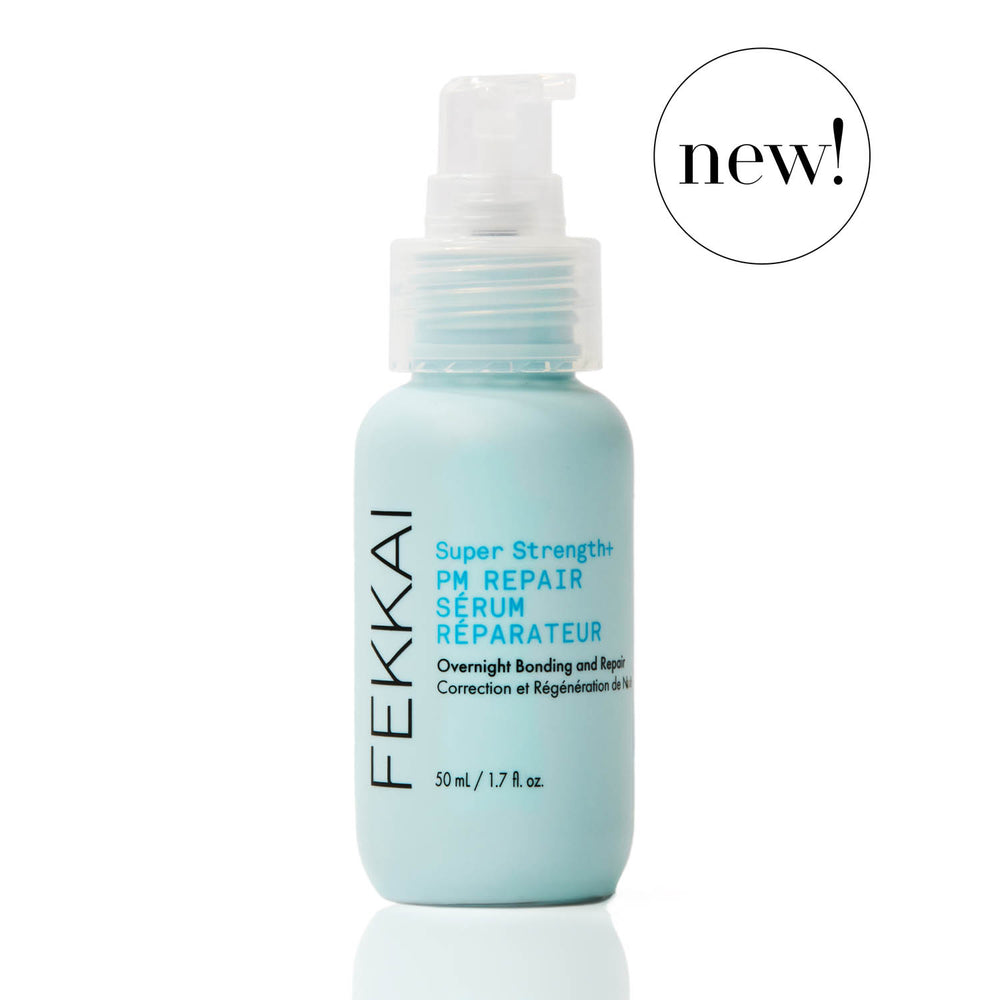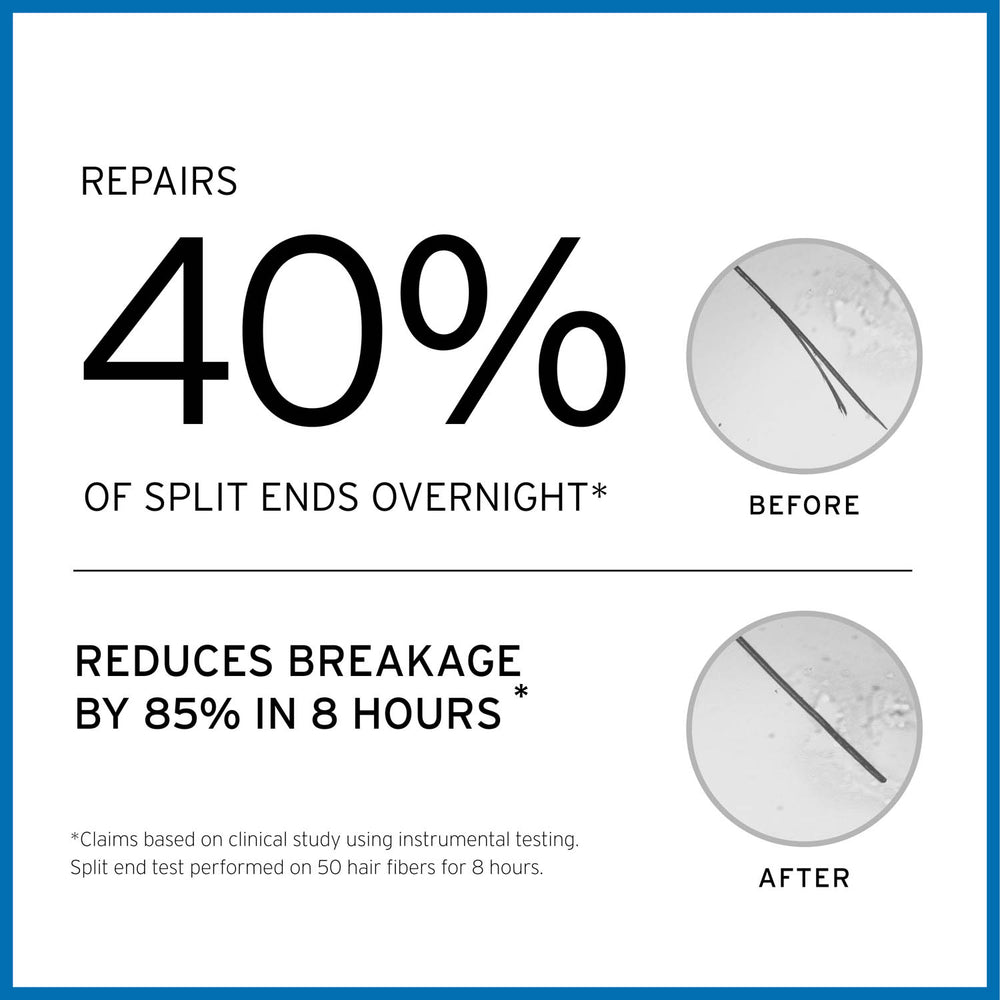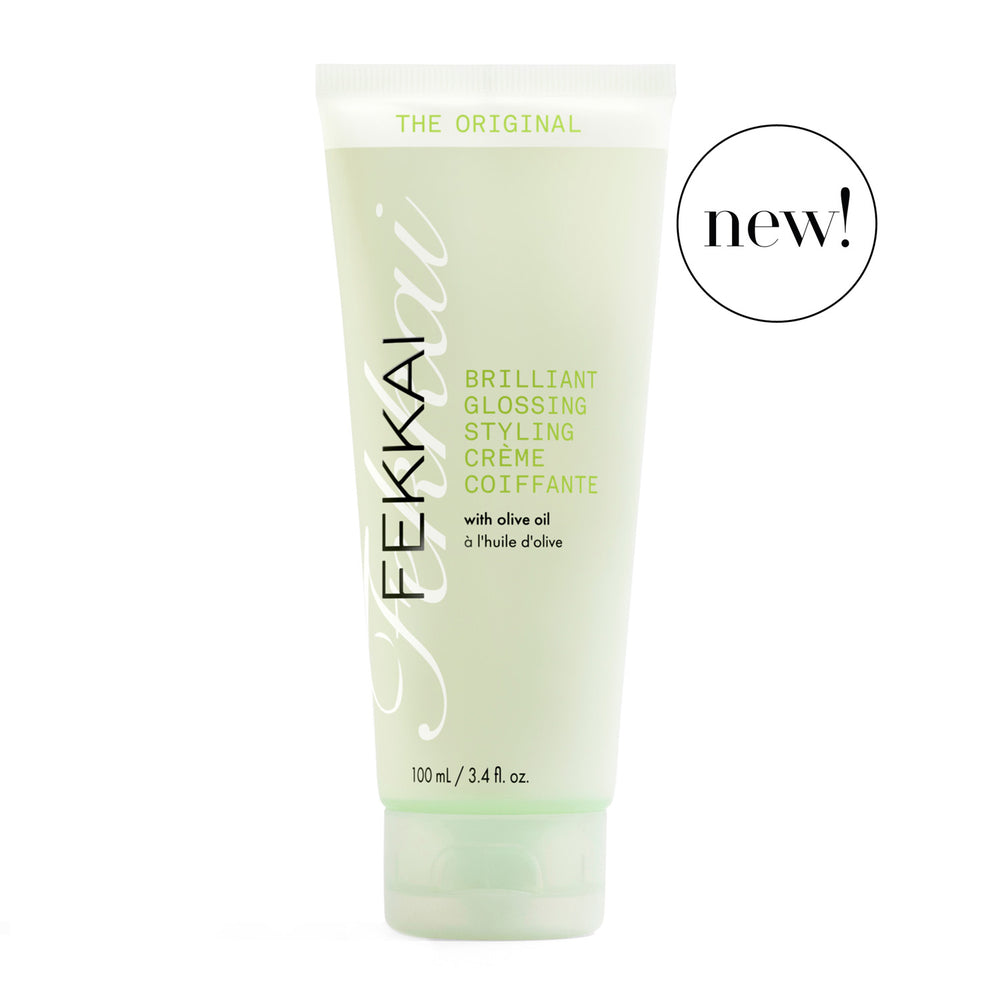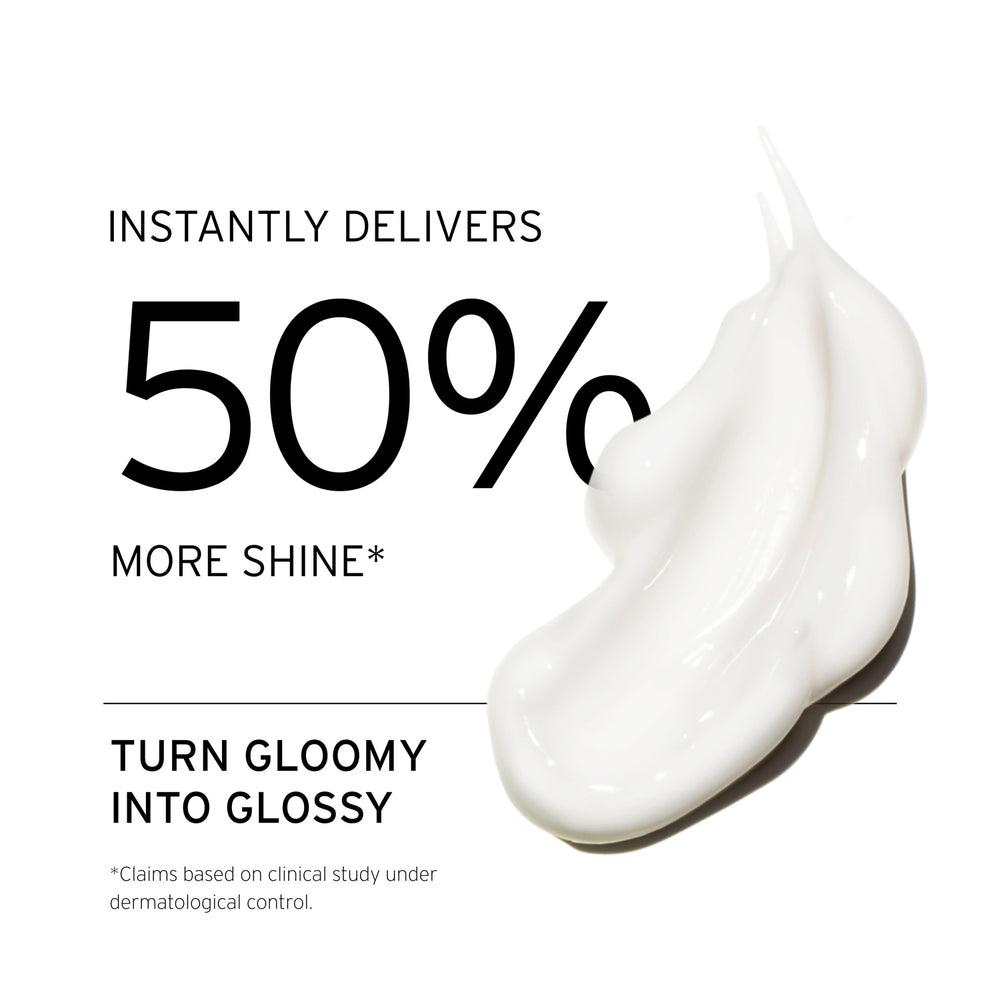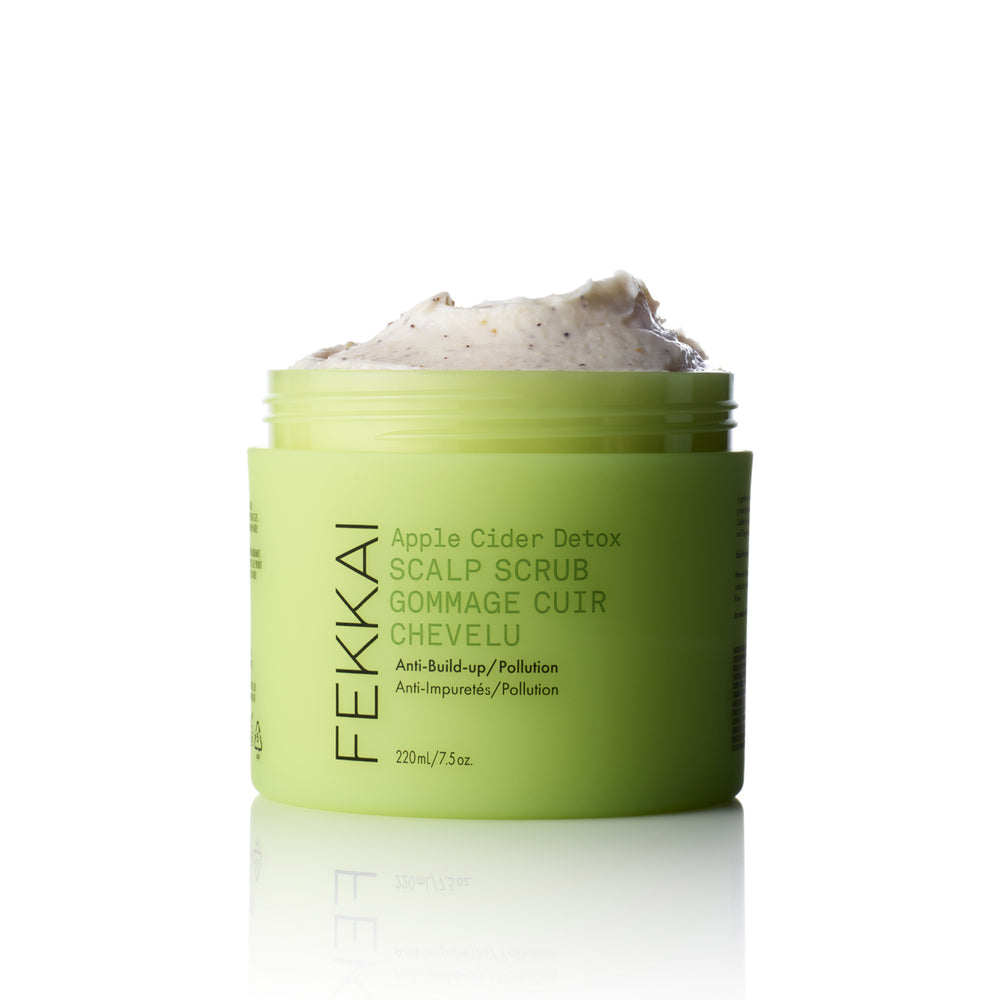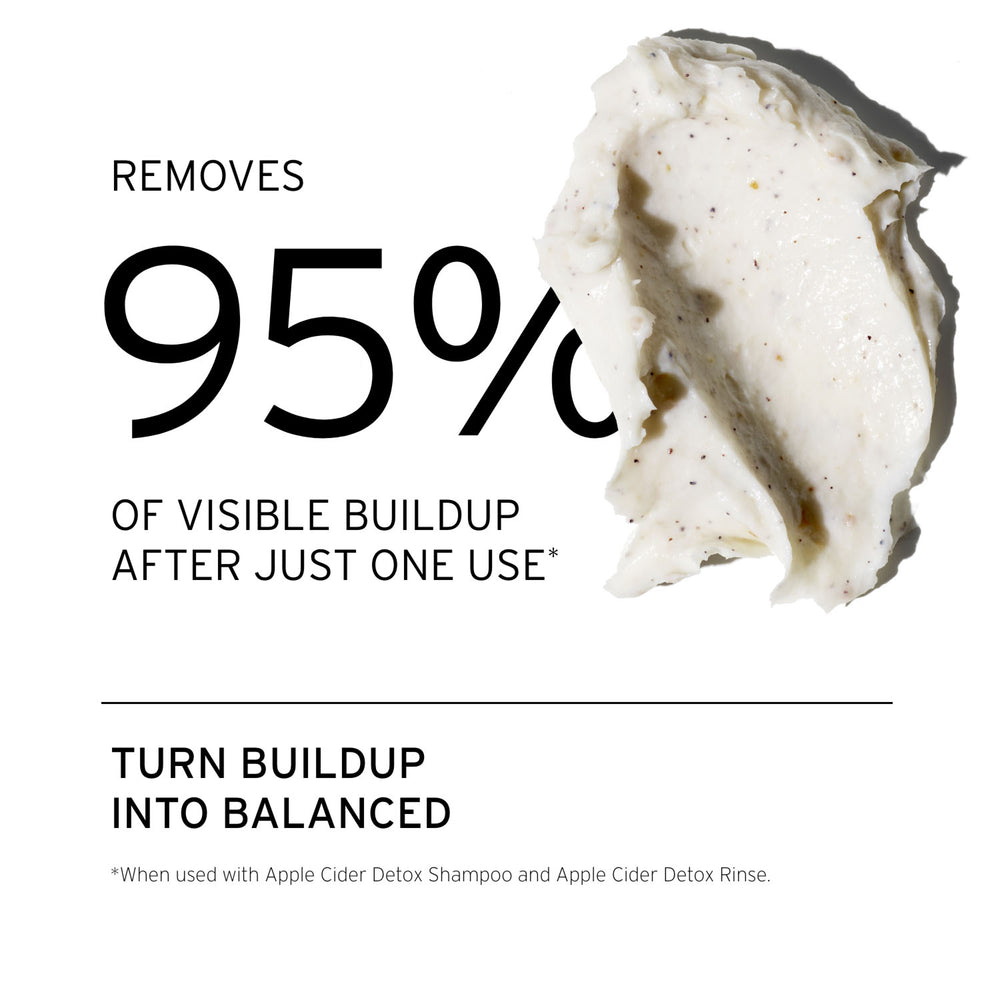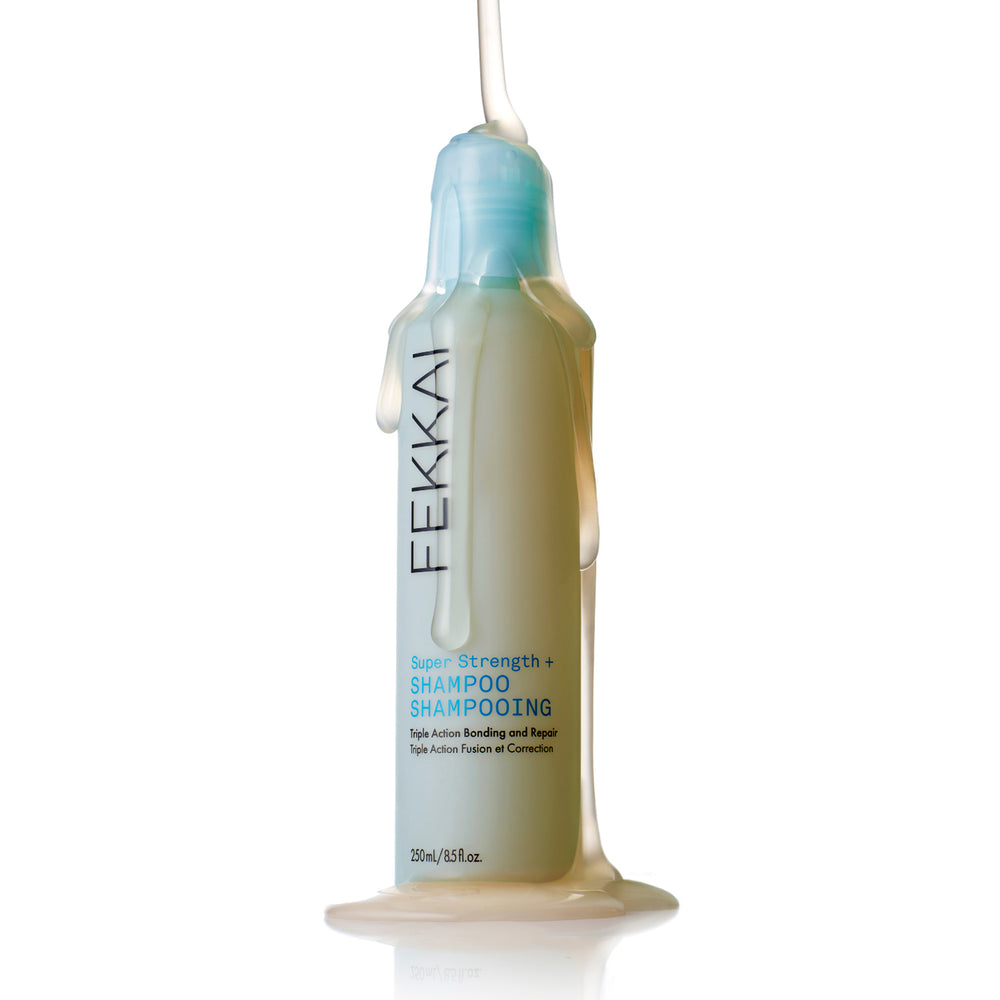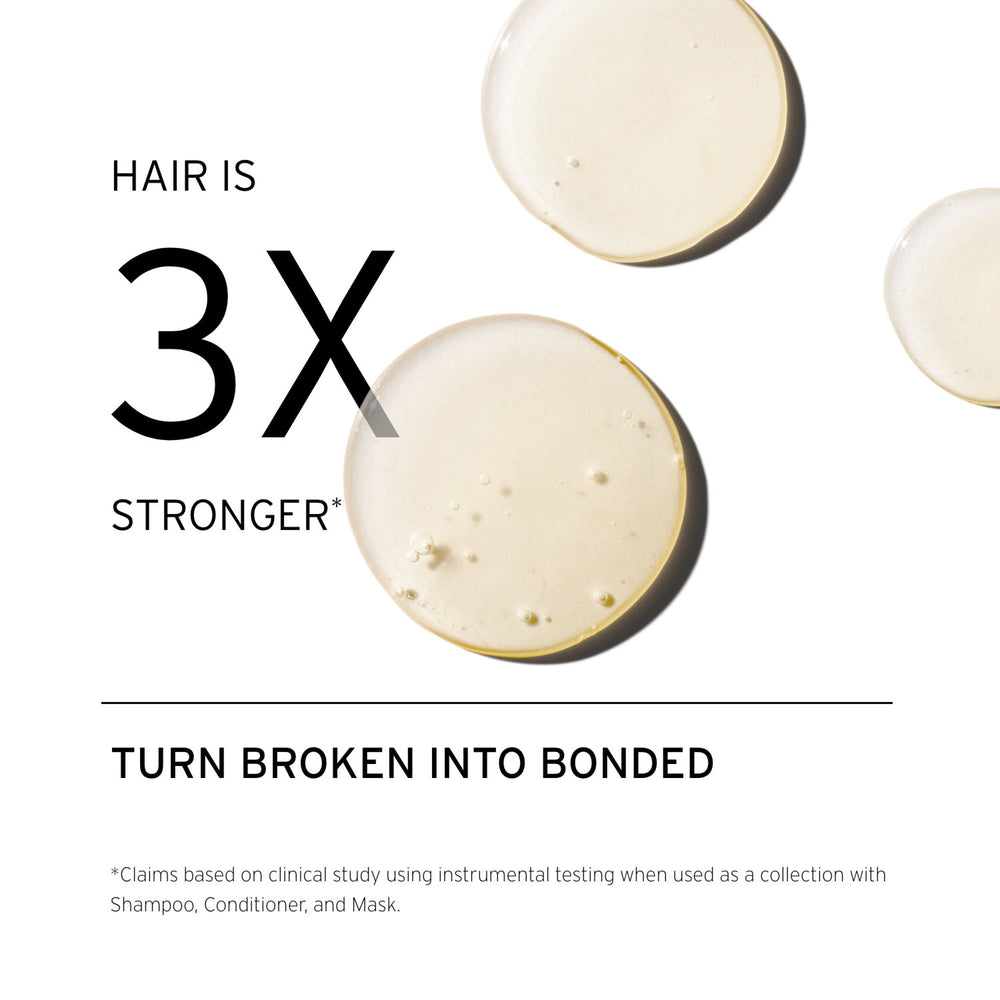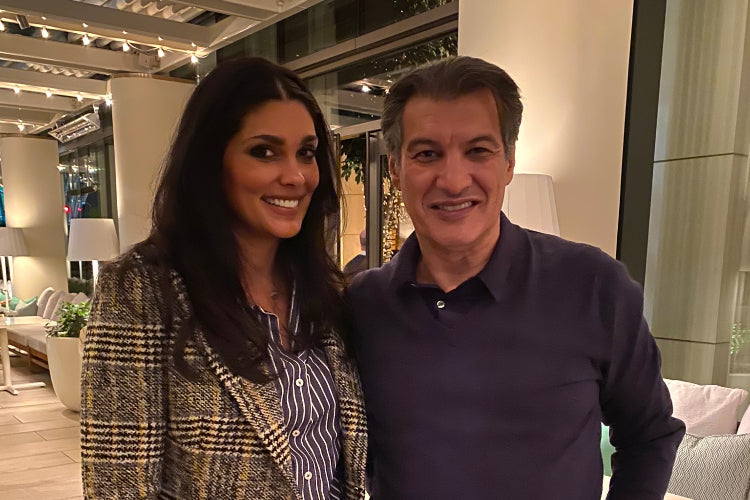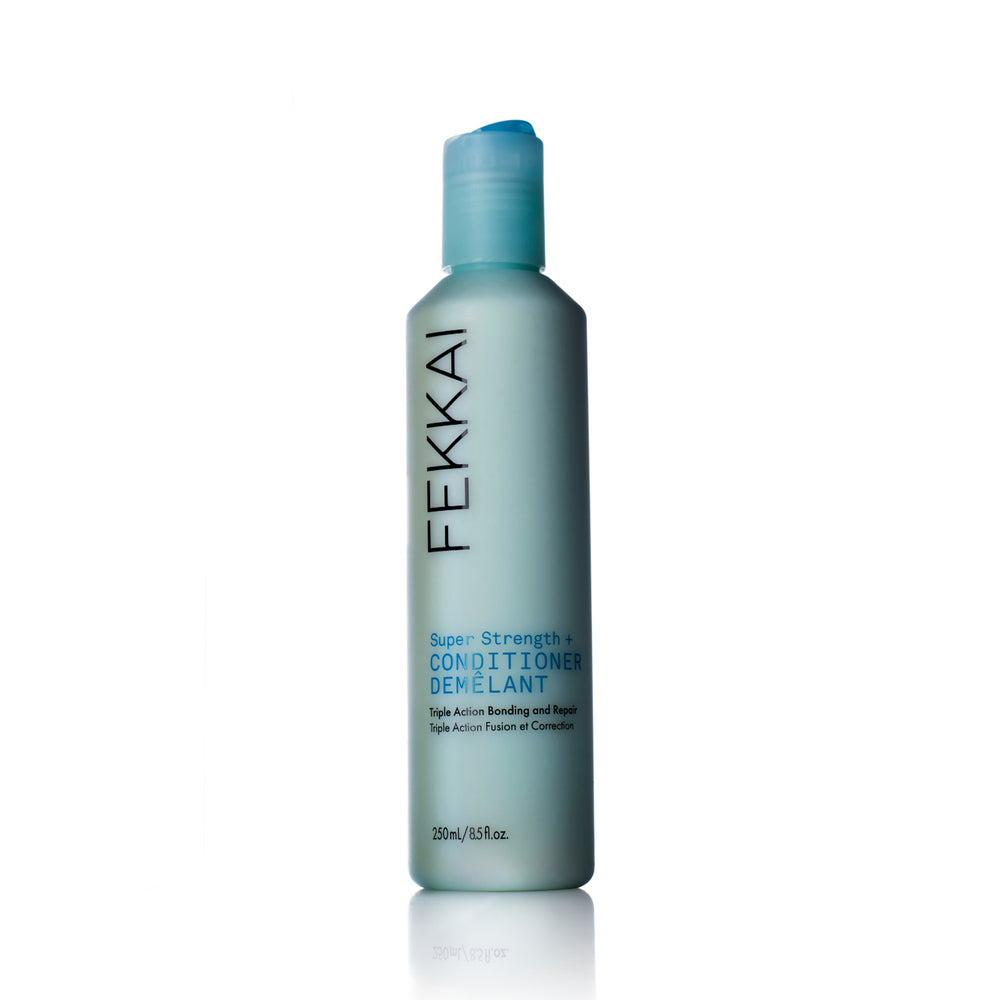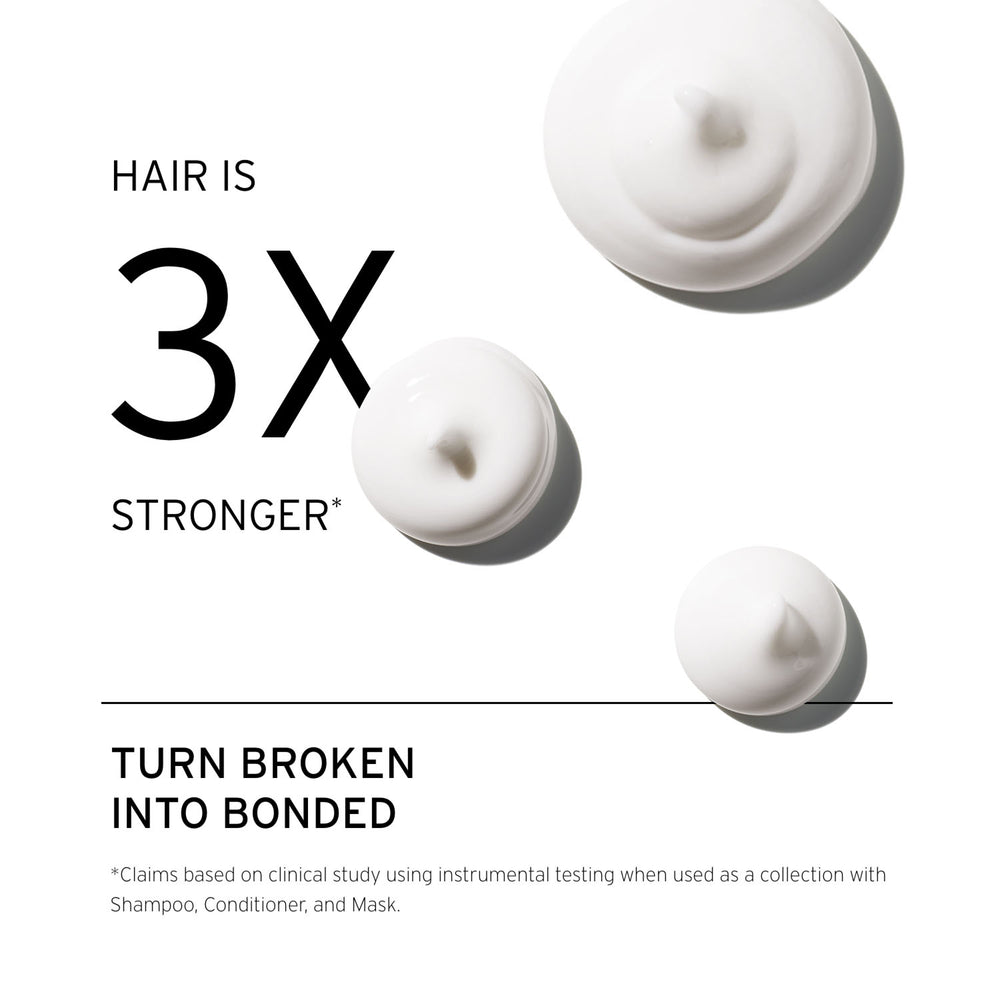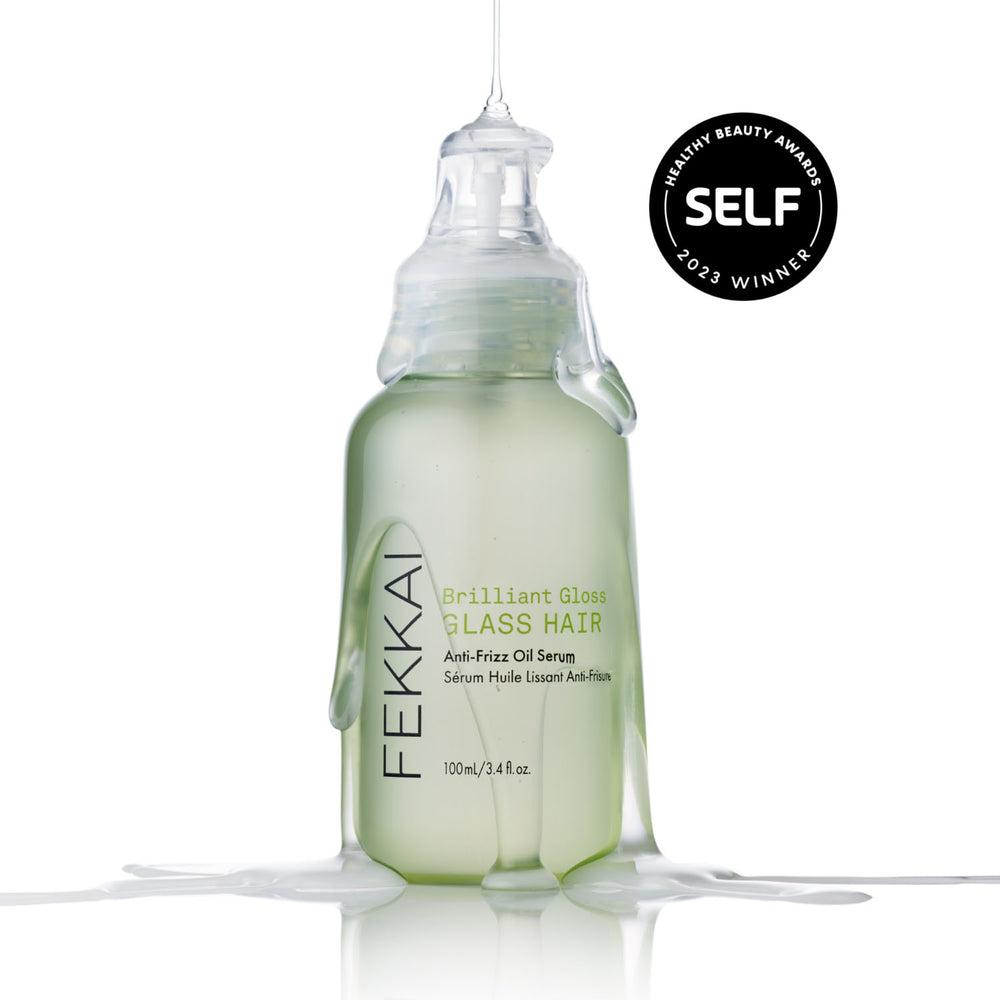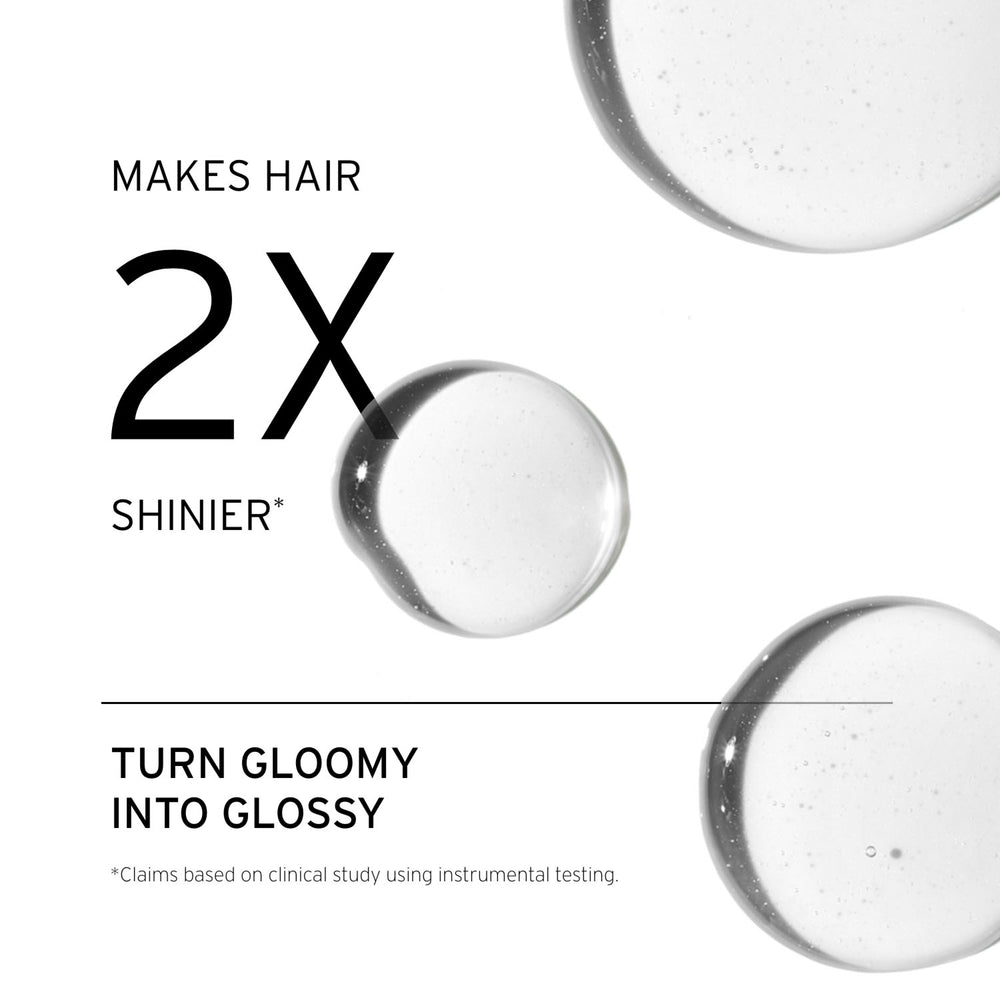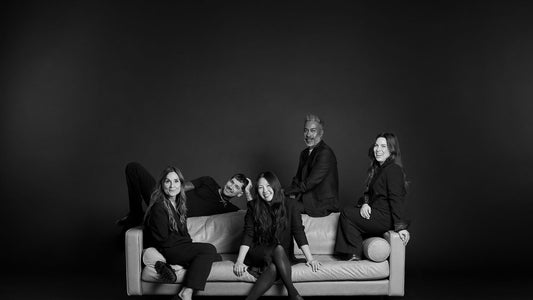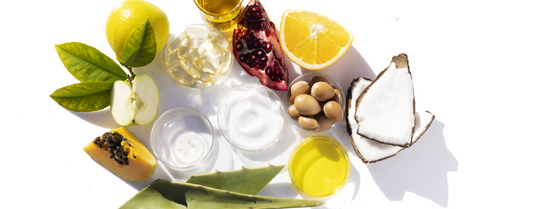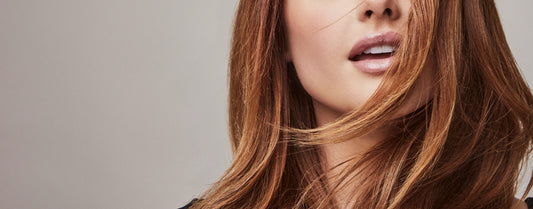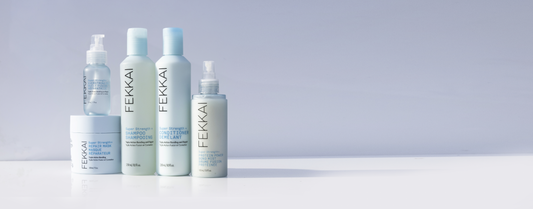I am a celebrity hairstylist, an entrepreneur, and a philanthropist who’s built my brand on taking care of others, body, hair, and soul. Join me weekly for The FEKKAI Life, a series of relaxed, intimate conversations with free thinkers, business leaders, and creatives who’ve used their passion to change the world for the better. Available wherever you find your podcasts.
RR: Hi, I'm Rachel Roy, fashion designer and founder of my own label. So for me clean living means generally trying your best to walk lighter, to not harm anything so that you can be healthy. Clean living means not only what you put in your body, it's the thoughts that you allow to come into your mind. It's the words that come out of your mouth. It's the people that you choose to spend time with the family members that you allow to influence you, all of that goes into, are you actually living clean?
FF: Hi, I'm Frédéric Fekkai and this is The FEKKAI Life. If you notice, I sound a little bit different. I'm recording from my home in upstate New York where I'm sheltering with my family. I hope you and those close to you are healthy and safe. Coming up, you will hear from someone I admire: Rachel Roy, fashion designer and activist, and a dear, dear friend about her commitment to ethical fashion.
FF: Rachel.
RR: Hi!
FF: So good to see you.
RR: So good to see you.
FF: So long ago!
RR: I don’t even—like 10 years.
FF: I guess. Let’s not mention it. So you're here in Los Angeles now with your two daughters.
RR: I moved to Los Angeles about seven years ago. Yes. With both of my daughters: Ava, who is now 20 and a sophomore in college, and Tallulah, who is 11 and in the fifth grade.
FF: Wonderful. We met so long ago in New York, and it's such a pleasure to see you.
RR: You did some of my shows. You cut my hair.
FF: Yes, yes. And I'm actually going to take that opportunity to introduce you to the audience here. You know, Rachel is a fashion designer and an activist. And we are so happy to talk to her about her new journey.
RR: So I actually started in 2004. I launched Rachel Roy in 2004. And my very first order was from Rupal Patel. I don't know if you you know who—of course, everybody knows her. She gave me my first order. Beautiful Indian woman. She worked at Bergdorf Goodman at the time. So that was my very first account. And in 2008, I started Rachel Rachel Roy, which is the secondary line. Yes, so to own my own IP. So IP is, you know, your own company for the very first time since 2004 is quite a feat. I'm very proud of that.
FF: IP, obviously everybody knows, but I've just mentioned in case someone don't, it's intellectual property, which is very, very important for launching your brand and I guess, you now have a plan and I want to hear about that later on. But I want to ask you first, yourself, you exude fashion and beauty. So, what is about fashion that first inspired you, and how has that evolved to what drives you today?
RR: That's a great question because I think it's what really unifies all of us. And you being from Morocco, originally? Where are you from?
FF: You know, actually, so I have a diverse background. My mother is half Vietnamese and half French and my father is Egyptian.
RR: Wow. Wow, incredible. So New York and LA are wonderful cities to start your own business, but they don't have a monopoly on fashion. In other words, men and women, children love fashion. And when you put on that garment that makes you feel like yourself, you can then become the best version of yourself. And I first witnessed this when I was in Africa. I was 16 years old. Bamako, but from Bamako, which is the capital of Mali, we drove for about two hours. And when we arrived in this village, it was very quintessential the children ran up to the car. I immediately kind of separated, went with the little girls. They looked through my bags, and some of them for the very first time saw their reflection for the first time. They looked through my mirror, they looked through my makeup. And really in that moment when I was 16 years old, I've realized that children are children are children. No matter where you are in the world, these things can bring happiness and joy. And so that is the part of the fashion business and the beauty business that I really love. And of course, there is the side of business that's not quite as easy.
FF: So, tell me. Today, you know, I mean, you have done phenomenal collections in New York. It was great. And all this time, tell me what is it that you want to do differently than what you've done in the past.
RR: You know, as I evolve, and as I learn, I would like for my brand to evolve. And what I mean by that is, having worked with the Nobel Laureate Kailash Satyarthi and really being on the ground with him in India and seeing what these factories are like, and seeing who is actually creating our product, it made me want to do things within my own company much differently. And when you have partners that don't agree with you, really the only answer is to start off again. And as you know quite well, that takes really doing it yourself. So you know, things like, what seems so simple and what I know my customers expect: product that has been sewn and paid for with a fair price, product that has been sewn by adults, not children, these types of things we just expect, but I've learned over the years it's not the case. And also fabrics. Just to have that lighter footprint on the environment is something that not only I feel s modern but I feel its the only way going forward.
FF: So you're partnering with some of the biggest names in the world, including Deepak Chopra, which I'm very impressed with. What an amazing, amazing person. What has resonated with you? Or by the way they live.
RR: What has resonated with me? Yeah, you know, Deepak is someone else that I've known for over a decade, and we created together. So interesting story about Deepak. This is before Instagram, I followed him on Twitter. And I would retweet many of his quotes because I thought that some of my customers might not know who he is. And he was helping me so much that I thought he could also be helpful to some of my fans and some of my customers. And so I reached out to him over Twitter, and he responded, and I said, "May I design for you?" Just like that, "Yes, absolutely." And I've really come to realize that the people that are confident and happy, it's always yes. And the people that are less confident is where I've experienced nos throughout my professional career. So we designed together.
FF: What did you design?
RR: So we designed Indian jewelry, we did hand chains, body chains, and I put some of his favorite quotes onto those. So one of his favorite quotes is "keep the stillness inside." And we put that very small, we etched that into a body chain. We did t-shirts, I kind of made them like vintage rock-and-roll style, but again with his quotes. So the idea was if you're not familiar with Deepak, and you might be having different hardships, this is how I get through it and perhaps you can as well. So Deepak and I have been friends over the years, we've traveled to India together. We've traveled to Italy together, travelled with his family. And we are now working on a project called Never Alone. And that is to raise awareness for people that are depressed, suicidal, it's a subject that just isn't talked about much.
FF: What did it mean to you to be able to purchase back your Rachel Roy line, and plan to relaunch it with the complete control? So now no partner, which is amazing. So you can do—free rein. So what's your dream?
RR: Yeah. So you know, first of all, it's steps for me anyway, it's get to one step, and then another step, and then another step. And I think for other people, you know, the big picture, the big dream works for them. But for me, when there's so many moving parts, I could just make it one step at a time. I could do one thing really well, but one thing at a time. I'm not someone that's really good at multitasking. I just now know that about myself. So what I did, I bought the IP back, I own it 100 percent. I immediately then went and sold the secondary line Rachel Rachel Roy, which I had to do to kind of balance out what I purchased. I still own part of it. But with Rachel Roy, that was the original thought behind even kind of creating clothing for my customers. It was always about what I needed. And I knew other women would need that too. And I'm going back to that original thought. What I need is what other women need. But this time I'm going to really take great care that the product is made safely and it also doesn't harm the environment.
FF: Great. So sustainability is key.
RR: Absolutely.
FF: Is it going to be difficult to do that today? There's not many lines or brands to do that today.
RR: There's not many, but there are some great ones. So I love Rothys, I think they're doing such a good job with shoes and Allbirds. And yeah, you know, it's not going to be easy. But I honestly in my heart feel that there's nothing else that is correct at this moment in time. As I'm taking meetings and as I'm relaunching and figuring out even how to relaunch, I do find myself in a position where I'm teaching more than I'm meeting people with shared values. And it is a bit disappointing, you would think that more of the world, more of the fashion world would be caught up to this, and many people are, but the ones on the side of making the decisions for licensing, for example, or manufacturing, they haven't caught up yet. So what I'm finding I have to do is figure it out one baby step at a time. And that's how I keep myself from getting overwhelmed.
FF: Great, you know, I agree it's difficult but it's doable. I mean, I see it.
RR: Well you’ve done it.
FF: With our new haircare line we were really adamant to really find the right supplier that are, you know, doing PCR which is, you know, basically recycled plastic and to really build a packaging that is recyclable, 100 percent recyclable and also to find formula, to create formula that are clean. You couldn't do that few years ago. So I think in fashion it is the same thing. Everything is evolving. Everybody's talking about it. I was just reading an article just yesterday that actually customers are shying away from non-sustainable brands. So it's perfect timing. And I'm so happy you're doing this.
RR: And I can see with my children as they make decisions on what to purchase. They just expect it. They don't they don't expect that children could possibly be making this product or child slaves could be forced to do nothing other than sleep in little rooms and make all of this you know crap really that that we don't need that ends up on the sales floor. So really wanting to focus with purpose and with intention on what do women really need? And how can we make it in a safe way? And yes, it's figuring it out on your own.
FF: And you’re talking about apparel but also accessories?
RR: So the gentleman that I work with, Nobel Laureate Kailash Satyarthi, a documentary was made about his life and his life work by Laurene Powell. And she executive produced it. So when I saw that documentary, it really just opened my eyes to, I mean, its beauty. So in the documentary, they show the specific brands where these children are making the product. It's called "The Price of Free." So you know, you're welcome to see it. And it's not, you know, I don't want to call out the brands and it's not about shaming, it's about perhaps I'd like to really think that they didn't even know. And once they know, well, then they make the changes that they need to make. And I'd like to think that they will. But once I started working with him, it opened my eyes to everything. Jewelry boxes, I mean, just anything you could think of.
FF: Great. So much of your activity focuses on children, and the next generation. So how do you think your own children understand the work you're doing?
RR: That's such a good question.
FF: And they are 19 and 11?
RR: 20 and 11 and I probably cannot answer it accurately. I can answer what I'd like to think that they think of me as their mother and the work that I do. But Ava, my 20-year-old, her and I, last year, we published a book, a young adults' book that we co-authored together. And it was her idea to give the proceeds to—
FF: What’s the name of the book?
RR: “96 Words for Love.” Yes, it was a beautiful experience working with her to create it. But the profits go to girls her age that had been rescued from sex trafficking in India, that she has met. So I've taken her with me a few times. And it's the best teacher that I could possibly think of is travel to third world countries. You don't even have to open your mouth. You don't have to lecture, you don't have to say a word. They're seeing everything. They're seeing how people live. They're seeing how little people are given in terms of rights of women, in terms of opportunities to make a living. And so if that doesn't empower them to want to help, I don't know what will.
FF: So of course, I'm guessing they are so inspired by you, but I'm sure they're inspiring you.
RR: I'm their mom. So I don't know that I'm not inspiring to them.
FF: Are they going to be involved?
RR: Yes. Absolutely. So the 11-year-old has the gene, she has the creative fashion, beauty, wellness, you name it, she wants to create it, and she is in there on the floor with me picking fabrics and colors and telling me what she thinks and my 20-year-old still lets me dress her. So they're quite different in personalities. But what they both are attracted to is like my two mini focus groups. So I have, you know, the young people in college and then I have the tweens. Not even tweens yet. And then you have myself, 46 years old, so makes the complete circle of what females are wanting in society today.
FF: Well, that leads me to the next question is, how has your perspective on life and career success changed over the course of your journey?
RR: You know, I truly think that if you're not learning, you're not evolving. And I'm just not interested in people, whether they're men or women that aren't curious, that don't want to continue to push themselves to their highest self. And some of the things that you can learn along the way are shocking and scary and can leave you feeling very vulnerable. But once you make it through that, you really do get to the other side and you do get to this peace. So I call it a "peace that passes understanding," which is a quote from the bible, and it's hard to really know what that means until you've been through a really low valley. And you come to this understanding that the only way to get out of it is by being your true self. So with that said, yeah, it's a constant process.
FF: So what's the ultimate goal for the brand? And how will you know when you achieve it?
RR: Oh, God, I think I need a glass of wine before I can answer that question. It's so good. You know, for me, I was never one that made a business plan and said, this is what I want to achieve and, and then followed it. For me, I am one of those people that when I close my eyes and feel, so stop thinking but start feeling, that's what I follow. And it doesn't work in all areas of my life, but it really does work with fashion and design and creating. And what I'd like to do today and moving forward, I'd like to be a voice for people that are just starting to learn about sustainability, that are just starting to learn about not eating as much meat and the impact that killing animals has on the environment. As I'm learning, I'd love for the information to come in and to go out and to really be a voice for that and but in a way that makes people feel included and not excluded. So again, I'm really not big on shaming, I'm more interested in education and learning.
FF: Great. Are you vegetarian?
RR: I am. 2017, Ava, my older daughter, had been asking me to watch this documentary on Netflix.
FF: Which one?
RR: It’s called “What the Health.” I hadn't really been taking it seriously. She saw it in high school. She had even asked to be vegan. I wasn't taking that seriously. I was not supporting her at all with it. And finally she said, "Mom, please, will you sit down and watch this with me?" And so the three of us sat down and from that day forward, we never had meat and it was a choice of compassion. So yes, there are so many health benefits, and there are so many benefits to the environment, but really seen how the food industry is created and then distributed. It was enough for me to say, "OK, that's it." And then of course, health benefits come along with that, but it was through the eyes of Ava my child that got me there.
FF: Great. So I became—and I don't want to use the word vegan or vegetarian—but plant-based. And you know, once in a while, I'll try to maybe get a very healthy steak. And actually I just did that not long ago and actually couldn't digest it so I felt like OK, I need to get back to my plan and you know, I saw also a documentary that was very interesting on Netflix, I don't know if you've seen it, "The Game Changers"? And that actually encouraged me to say wow, actually, you know I can find protein elsewhere and that can be satisfying my digestive health issues.
RR: It's a fantastic film and it's really good for for men also and people that are athletic because it just disproves so many disnomers.
FF: So, Rachel, now that you are embarking in this journey, how can anyone follow what you do and start to understand and maybe buy your product?
RR: Well, thanks to social media, people can follow me on @rachel_roy, that's my social media name and my website, same thing, Rachel Roy is being redefined and redeveloped to be an organic and sustainable resource for my customers.
FF: Rachel, have you seen or read or any company out there in fashion, mostly, that are your benchmark, who've done something like you plan to?
RR: You know, there are so many new companies starting with this emphasis on sustainability and an organic way of approaching their company philosophy. But a favorite of mine is actually called Blueland and they are a cleaning supply company that they mail to your home in these beautiful bottles, so you don't mind having them out on your counter, window cleaner, hand soap. And instead of having to purchase new bottles over and over, you drop in these tablets. And you just keep reordering tablets as you need them. And I'm fascinated with the company. So my older daughter, Ava, saw them on Shark Tank and said, Mom, you have to get this. And she was absolutely right, because we did a little test we did our former product as compared with the organic product. And it worked just as well, if not better. It's more beautiful to have out. It's created by a wonderful designer. So it's products like this that you start to learn about slowly and it doesn't happen in one day. Doesn't even happen in one week. I think just last week Tallulah and I got replacements for Ziploc bags. I mean, this is a process that happens over months and sometimes years to get your house where it needs to be. But clothing line-wise, I think Reformation is doing a really good job of being transparent and using fabrics that are recycled and softer on the environment.
FF: Great. By the way, I met Sarah, the founder of Blueland. She's terrific. Yeah, she's great.
RR: Oh, we’re so impressed in my house.
FF: I think it’s a great, great idea.
RR: Do you use the product as well?
FF: I do and you know, I hope she just succeeds with that.
RR: I think she will. I have a good feeling about it.
RR: So since I have this opportunity to be sitting in front of you, I would really love to know how you made the transition and switch to the organic haircare line.
FF: Thank you. Well, first of all, you know, when I bought my company back about a year and and four months ago, the first mission was to me let's not repeat the same chapter, you know, the world has evolved, and the world is alarming today. You know, we know that there is so much waste so much, so much damage to the planet. I don't want to call myself an activist because that's a strong word and I'm not sure if I'm up to the task, but I do know that one thing to be done is to develop products that are eco-friendly, sustainable, and also healthy. Clean. So to me the message was let's do product that we can be proud of, the products that are going to be, you know, recycled so never be any waste and also products that care for our health, our beauty, making sure that they're beautiful, that they're great, they're performant, but they do not have any toxic ingredients and also by doing so making sure that we pamper our beautiful planet. So the message was that in a nutshell and you know it was not an easy journey but thank you and I'm glad to share that with you, I'm lucky that I had a great team that was very good at finding the right manufacturer. It's a great story. I drove all the way up to Plattsburgh, New York, next to Canada and to meet Mr. Weber. Mr. Weber is a supplier of this plastic, which are completely recycled. So he basically find this PCR, post consumer recycled plastic, and then shred it in little pellet and then we mold it to a new packaging, you know, new bottle. So it's 100 percent recyclable, it's in a factory, and he's not a trendy guy. This guy is an older man. He's been doing this since World War II.
RR: Really? Did he have a lot of customers over the years?
FF: You know, he is German, so he started in Germany and then Canada, and then New York. So he does have a lot of customers but you know, it's not huge, but he has customers. And the good news with him is that he walked the talk. He built this factory that is powered by the Niagara Falls. So is it's all about, you know, sustainable energy as well. It's really cool. It's very cool.
RR: That's wonderful. As I'm learning and discovering, kind of following a few years behind in your footsteps, you know,you realize that people "No, no, no, it's too expensive. You can't do it." And so it is very frustrating, right? To know that the right thing to do is more expensive. And then how do you create a product that is still accessible and affordable to the people that really need it?
FF: That’s right. That's the key to the success is to figure out how to make it accessible, affordable, and to basically check all the boxes on here. Finding the right partner.
RR: That's my goal. So congratulations.
FF: Thank you.
RR: Very inspirational.
FF: Well, I think you're on the right path and you're going to see your success very quickly.
RR: Thank you.
FF: So we'll see you. We'll follow you.
RR: As always, I will continue to follow in your footsteps.
FF: Well, for everyone: Rachel Roy, @rachel_roy, rachelroy.com.
FF: I'm so inspired by rituals, commitment to ethical fashion, to pulling back the curtain on how we produce things in our life and to being bold enough to rethink the direction of her career. I can't wait to see what she does next. I'm Frédéric Fekkai. And this is The FEKKAI Life. Thank you for listening.
Follow Frédéric Fekkai on Instagram and LinkedIn.
Follow FEKKAI on Instagram, YouTube, TikTok, and Facebook.
Subscribe to The FEKKAI Life podcast on Apple Podcasts and Spotify.
